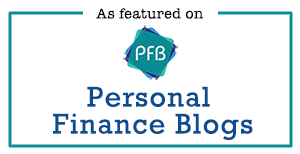Warning! This post might resolve all the dilemmas and uncertainties you have in regards to buying a property.
Okay, buy vs rent is one of those questions that is really hard to answer, so many people stop at the “it depends” conclusion. I agree with that answer. However, I’ll try to formulate the decision process as clearly as possible, so everyone in the “it depends” group can benefit from it.
The Extremes
Although most people know that it depends, there are those who got lucky and advice using hindsight, there are some who are radically against home ownership because it doesn’t make sense in their area, and there are some who are still struggling to make their minds up etc. I’ll try to go through various scenarios that should cover both ends of the spectrum, but also the middle.
Before making my thoughts public, let me outline the two extreme perspectives summarized in an irresponsibly simplified manner.
Buy, don’t rent!
“The properties always go up in value on the long run. Leverage the low interest rates and start building equity. Even if you don’t live in the property, you can rent it out. Yes, managing tenants and fixing toilets take some effort, but it’s nothing compared to working for 60 years. At the end, it’s all about positive cash-flow.”
Rent, don’t buy!
“Don’t be a slave for 30 years. The house prices make absolutely no sense, even ignoring maintenance, bills, and taxes. Never buy! Enjoy the flexibility renting gives you and let someone else care about fixing the toilets. And don’t forget to factor in the opportunity cost of owning a home.”
Who is right?
So, both sides have valid points. But both sides often forget that their conclusions make sense for them, which means that universalizing their findings is not the right thing to do. If you think about it, almost every radical opinion is wrong… That’s why I’m saying “almost”.
Nevertheless, the key parameters I want to focus on in this post are Opportunity Cost and Leverage. Basically, balancing the two is the best way to answer this question for yourself. And the answer is not a constant / absolute value. It’s a function – a function which value grows with excess leverage and lack of opportunity cost. So, let’s explore these parameters.
Opportunity cost
Opportunity cost is the value you lose by foregoing an opportunity when going for another one. Read more about it in this post. For example, by focusing on your dreams of becoming an actor (and succeed in it) you miss the opportunity to go to school, land a stable job, and live a calm life. It goes the other way around for many people, but you get the point.
In terms of investing, many people point out the opportunity cost that comes with buying a house. And they’re right, under certain assumptions.
The argument is as follows: by investing your money in a house you miss out on the returns that the stock market would give you if you invested in it instead.
And indeed, even in a housing market perfectly timed using techniques such as getting lucky, you could sell the property after a few years and realize gains. However, every backtesting that compared real estate vs stock market returns showed that stocks are a better vehicle for maintaining and building wealth.
To put some numbers on it, as mentioned in my inflation post: by purchasing a house in 1963 with 17200$, a person would have $225k today, while by investing the same amount in the stock market, he’d be worth $715k. As unreal as it sounds, the stock market could leave you around $500k wealthier than a house over the years.
There’s also the opportunity cost of being anchored to a specific place. If you’re emotionally tied to your home, you’ll miss out any opportunity that’s not within a driving distance of where you currently live. We can’t factor in all the options you’ll ever have, but we can conclude that buying yourself a beautiful cage that will eat up all your money is not a wise decision.
But what about the people who are not emotional about leaving their houses? If you decide to become a landlord, you either have to manage tenants or have extra expenses for an agency managing your property. On top of that, you have to pay property taxes (among others), insurances, contribution to the association of owners (or similar scheme in the country you live), and also account for unplanned maintenance / repair costs. And of course, the tax advisers, notaries, and agents you may need to take care of the actual work for you. All of this on top of the monthly mortgage payments you had anyhow.
Okay. Until now it sounds like a lose-lose scenario. But there is something that many people miss when evaluating whether to buy or rent from financial standpoint. Before going into it, a word of advice:
Don’t put all your money in a house. Don’t get a mortgage for half a million if you’re earning $50k per year. To lead by example, I don’t even look at postings higher than 3x my annual salary.
What did they miss?
So yes, there might be opportunity cost associated with owning a home. But there is a sneaky contradiction that people rarely spot.
On one hand they claim that a house is a liability and on the other hand they’re describing it as an asset. Investing doesn’t work like that.
When you buy a property, it’s either a residential property you plan to live in OR an investment property you plan to rent out. XOR might be a more adequate term if you’re into using Boolean Algebra in day to day communication.
When buying a property to live in it, it is indeed a liability. Okay, technically, it’s an asset, but it doesn’t produce any income and have various costs associated with it. We’ll call it a liability for the sake of simplicity.
Owning this liability is not inherently bad though, because the alternative is not a free shelter! And I’m surprised how nobody addresses this point. Of course, if you live in Bejing, China, it doesn’t make sense (you’d pay 800$ per month on renting an apartment vs $13k per squate meter on buying one). But this is an exceptional case, not the standard. In many places the costs associated with rent are equal or higher than the costs associated with owning a home. The opportunity cost argument is simply wrong for such places.
Of course, if a person is prone to bad habits and consumerism, put him in the most landlord friendly place with lowest prices for home ownership, he’ll still get the highest mortgage he can and work half of the year for the government (taxes) and half of the year for the bank (mortgage). So it’s not as black and white as having a home or not.
And when it comes to real estate investing (when your own housing costs are not part of the equation), it’s more straight forward. The opportunity cost should be assessed together with your situation – whether it would make sense to diversify into real estate given the current and projected rental yields, house prices, interest rates, demographics, stability, laws, etc. in the place you live in while adding 10% in unplanned expenses. Global Property Guide is a great website for comparing rental yields, among other things related to real estate.
Leverage
Purchasing a home or an investment property actually makes financial sense when certain factors are satisfied. One of them is getting a low interest mortgage with low down payment, or even without a down-payment. But leverage is also a concept that many people miss.
When I was young and financially illiterate, I also had ideas that ignored leverage. Basically, I went from dreaming of buying an apartment in cash, to being able to do so. But at the same time, I went from ignoring opportunity cost to understanding how to leverage debt. Let’s digest my findings together.
First thing’s first, leverage means using borrowed capital to undertake an investment decision and it’s used to amplify the investment returns. Getting a mortgage is an example of leverage. Basically, you get an asset that’s worth hundreds of thousands of dollars and all you need to do is change the recipient of your monthly housing expenses. So, where is the opportunity cost? Let’s consider an example.
Where is the opportunity cost?
Let’s say you earn $3k (net) per month and your expenses include $1k for rent, $1k for living and $1k for investing using DCA. Easy.
You decide to buy a home for $200k and your monthly mortgage payments are 800$. Add 200$ for additional costs and you have the same ratio of expenses. Where is the opportunity cost?
But let’s say that you’d only settle for a good deal, so you find one for $170k, lowering your monthly mortgage payments to less than 700$. Not only that there is no opportunity cost, but now you have even more money to invest in the stock market. Wait, real estate and stock market? They could coexist!? Yes, owning a home was not always mutually exclusive with investing in other asset classes.
But what about the careless person getting the highest mortgage amount he could afford? Boom, 2000$ in mortgage payments per month! Enjoy being poor and hoping that those 4 walls will contribute to your well-being. There’s the opportunity cost!
So, there isn’t an absolute truth… If you somehow live for free – don’t buy an apartment. But if you already have costs associated with housing, keeping the same expenses while building equity at the same time might not be a bad deal. Then, the only risk you’re taking is the “systematic risk” of the housing market where you reside – which is something I’ll talk about in another post.
“But you’re not including agent costs, taxes, and maintenance.”
Not yet, indeed. Let’s break them down in the same oversimplified manner as I did with everything in this post – 5 year period, mortgage payments and monthly rent are 1000$, ignore inflation.
While renting you lost $60k. While buying, you have $30k in equity and paid $30k in interest (using 50/50 because this varies based on the mortgage type you’ll pick, more on that in another post). Add an extreme case of $30k in expenses – and you’re still better off than renting. There is no opportunity cost if you’re financially intelligent and not emotional.
Key takeaway: don’t ignore the leverage. Use it! Especially if you plan to live where you currently reside. Of course, there are other factors than the area itself, but those were addressed in the 7 steps to whether buy or rent.
And another word of advice: this is not a process you should rush.
Summary
A long post with lots of random thoughts throughout it. The idea behind it is to understand that there is not always an opportunity cost associated with buying a property, especially if it’s for you to live in it.
But remember, it’s not BUY vs RENT. It’s not Opportunity Cost vs Leverage. Consider both options and realize that they both converge to the same point: not overspending when making financial decisions.
Then, we can learn to (re)evaluate rather than have a radical opinion about a question that has only one real answer.
It depends.










 PayPal.me/MonkWealth
PayPal.me/MonkWealth